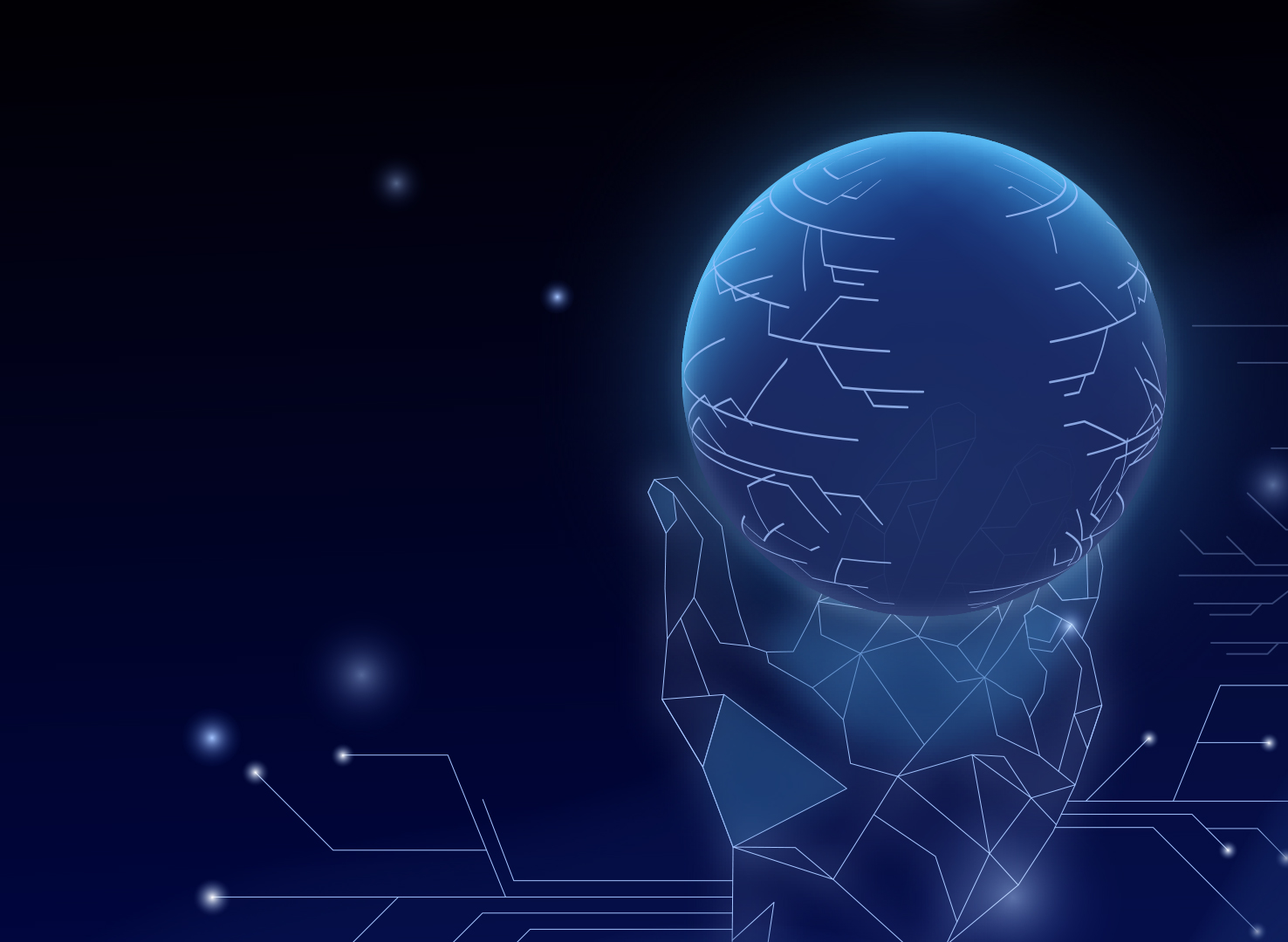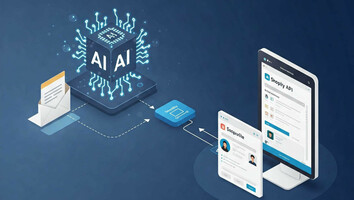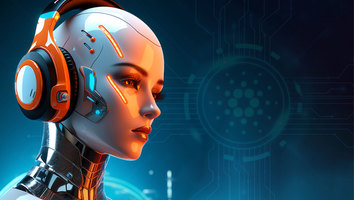With the emergence of new technologies, it has been noticed that AI (Artificial Intelligence) and ML (Machine Learning) are the central building blocks in the world of software. Web 2.0 has been serving us for more than two decades, and due to its shortcomings, we are now entering a new digital era of Web 3.0. Web 3.0, the Semantic Web, is an approach to internet evolution that promises better privacy and user empowerment. Artificial Intelligence is playing an important role in the evolution of Web 3.0, as it supports a better, secure, decentralized, and user-centric internet. AI capabilities in different areas of Web 3.0 can do wonders, allowing you to have a completely different digital experience.
PwC predicts that by the year 2030, AI will contribute around $15.7 trillion to the global economy, with an increase of 14% in the global GDP. AI is the foundation of the latest software applications, helping to redefine the approach to the key components of software infrastructure, from cloud computing to networking. Slowly and steadily, Web 3 is entering the core, and ML is playing a vital role in enhancing AI-based Web 3 technologies. Web 3.0 applications look for better security for which there is a need for building a decentralized infrastructure capable of removing the requirement for central servers. AI is the fundamental building block of Web 3.0, as Web 3.0 runs on a distributed blockchain and cloud networks. This technology combination provides a better user experience, content, and human-machine interaction.
AI as a Cognitive Layer of Web 3.0
Web 3.0 is all about communication between machines, and for this, machines need to understand digital content. Here, AI comes into the role as it becomes the logical layer of Web 3.0. AI provides an understanding of deep learning algorithms and analytic capabilities that help machines understand digital content better. Deep learning algorithms help to train the AI so that it can recognize different content, and the search engines can also provide the best content search to enhance the user experience.
NLP (Natural language processing), a burgeoning field of AI, plays an important role in the semantic web, as it allows AI algorithms to gain a better understanding of online communication. NLP in the semantic web supports safer online communication, as AI-powered chatbots are a perfect example of this.
AI in Web 3.0
We all know that AI is redefining the user experience in Web 3.0 in different ways-
Better decentralized Apps and NFTs- Blockchain developers are integrating AI and ML algorithms so that Web 3.0 can provide better-decentralized apps. With the advancement of AI algorithms, dApps and NFTs of the next phase will have more advantages.
Safe content- Web 2.0 has been dealing with the challenge of content safety, but AI is capable of removing the biases of the human mind, resulting in reliable content. The scalability of AI algorithms helps in video content safety, thus changing how content safety is managed in Web 3.0.
Personalized recommendations- AI-powered recommendation engines are used in Web 2.0 apps, and AI algorithms will be an integral part of Web 3.0. AI-based recommendation engines provide better navigation and user experience as they understand users' preferences and provide them with the most suitable and personalized recommendations.
Users to owners- Usually, content control is with the companies, and the companies make a profit from it. The content owners are not usually known and are not paid well. Web3 offers an opportunity for content owners to control their data; they can edit and reshape their content.
Relevant advertising- Applying AI algorithms will help advertising companies study the data and look for factors that will help them to personalize user ads. This will assist web3.0 users in receiving appropriate ads, and the AI algorithms will continue adapting to the individual users' preferences.
AI in Web 3, making layers of Web3 Intelligence
Machine learning is an important part of AI, and this can help spread to different layers. The three basic layers of Web3 that can provide useful insights are:
Smart Decentralized Apps- One of the well-known web3 solutions for quickly adding ML-driven features is dApps. NFTs are a good example of this trend and in the future, NFTs will move from static images to artifacts supported with intelligent behavior. Also, NFTs will be capable of adapting to the mood of their owners' profiles.
Smart Protocols-Using smart contracts and protocols, the Web3 stack can be combined with ML capabilities. DeFi is a perfect example of this and in the future, we will see DeFi computerized market markers.
Smart Blockchains- Blockchain platforms at present are looking into the development of key distributed computing components to support the decentralized processing of financial transactions. In the future, layer 1 and layer 2 blockchains will have machine learning (ML) capabilities, becoming more intelligent and smarter. Artificial intelligence (AI) is used for security purposes, mining data, detecting fraud cases, and predicting behavior. Blockchain will certainly experience the benefits of AI.
AI being successful in Web 3 areas
To have a better, efficient, personalized, smarter, and more intelligent digital experience it is important to incorporate AI capabilities in different areas of Web3. AI is playing an important role in the growth of Web3 by supporting some of the areas like-
Decentralized Artificial Intelligence- It is a platform where AI combines with blockchain and distributed computing. The power of AI is merged with decentralized technologies so that AI models can be trained efficiently in a distributed manner. This helps to reduce reliance on central entities while enhancing privacy and security. It also leads to highly efficient and scalable AI systems. Good trust and clarity can be seen if decentralized AI systems are built on blockchain. Decentralized AI is also useful for edge AI and IoT devices.
Smart contracts- Smart contracts in Web3 are supported by AI, as AI helps to easily handle complex decision-making processes in smart contracts. Complex workflows and processes can be automated by AI-driven smart contracts. Smart contracts can manage large processes quickly and without any errors, as AI can process large amounts of data. If the smart contract code needs to be improved for better performance, AI can also make the necessary changes.
Analysis-insights of data- AI is capable of handling large amounts of data, and it can quickly analyze and gain insight into the data available with Web3. The AI techniques such as NLP, ML, and deep learning can understand data trends and patterns, to provide better insight within the Web3 system. AI-based data analysis also helps to look for innovative opportunities in Web 3 that lead to the growth of technologies.
Decentralized Autonomous Organizations- AI is useful for DAOs, as it helps in decision-making processes. AI can also improve DAOs adaptability while enhancing its transparency and effectiveness.
Web3 applications- NLP, a field of AI, is used in Web3 to fill the gap between human language and other digital services. NLP enables smooth conversations between users and Web3 apps. Additionally, NLP can automate content in Web3 apps while keeping up with the latest trends, patterns, and insights, which helps to improve the development of Web3 apps.
Personalization- AI algorithms can get to know about the individual needs and interests of users, which helps in engaging them. AI supports personalization, which helps to engage users while providing them with a better experience. AI-driven personalization is beneficial for communication, advertising, and user interfaces.
Security-Privacy- AI is known for maintaining security and privacy and using modern AI techniques to help web3 apps quickly identify cyber threats. ML algorithms are well-trained to proactively detect cyber threats. AI technology can help form more secure authentication methods for web3 apps, making them less prone to fraud.
Final Say!
It can be seen that AI is playing a significant role in Web 3.0. Shortly, the applications of AI will be further used in Web 3.0 for better results and positive growth. AI will understand the shortcomings, and the integration of AI with Web 3.0 will help to overcome the problems to support a better digital world.



